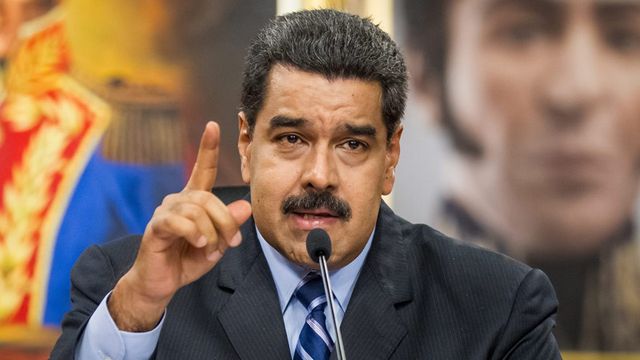Subscripe to be the first to know about our updates!

After Years of Drisis, Venezuela’s Maduro Might Finally Be Ready to Accept Some Help
Rachelle Krygier
Venezuela may have reached a tipping point.
The country, of course, is still a mess, with almost 12 percent of the population malnourished and infectious diseases spreading rapidly, according to UNICEF. Making matters worse, an independent national survey of 40 hospitals found that a third of beds aren’t operative, half of emergency rooms do not have vital medicines, and 95 percent of CT scans and 51 percent of X-ray machines aren’t working.
So why the celebration among some Venezuela watchers? It’s because the government of President Nicolás Maduro has essentially admitted the depths of the humanitarian crisis in his country and agreed to accept some financial help — albeit a modest amount.
For years, the South American nation’s leftist government has blamed its dramatic social struggles on a foreign “economic war.” Since the days of the late president Hugo Chávez, who led a “Bolivarian Revolution” and died in 2013, the government has openly refused financial aid, calling offers of outside help thinly disguised efforts by “imperialist” powers to intervene.
But within the past two weeks, the United Nations announced that it would funnel $9.2 million to Venezuela from its Central Emergency Response Fund for the first time a sum the Venezuelan government had agreed would go to U.N. agencies here. Maduro also invited former Chilean presidentMichelle Bachelet, head of the U.N.’s Office of the High Commissioner for Human Rights, to visit the country. The invitation came after refusing entryto the previous commissioner this year. The country’s secretive central bank, which had refused to share financial information for the past two years, is also reportedly preparing new data for the International Monetary Fund.
“The government likely changed its opinion on how to deal with a worsening crisis and more international sanctions out of necessity,” said Luis Vicente León, political analyst and director of the Datanálisis polling agency. “The cost of risking their image is becoming lower than the cost of dealing with the crisis by themselves.”
U.N. agencies have been in Venezuela for decades, but they’re now increasingly being given a green light to grow their programs. In October, for instance, UNICEF agreed to expand operations and multiply its budget sixfold, to $32 million. This expansion could not have taken place without Venezuela’s blessing
“The crisis has evolved and so has the need for our help, which is why cooperation has progressively grown, too,” said Raquel Fernandez, UNICEF’s Venezuela spokesperson.
Critics of the government caution that the move isn’t a full-blown change.
In a televised address Nov. 26, Maduro said Venezuelans needed protection because of foreign aggressions and that through sanctions, “just like Hitler persecuted the Jews, Donald Trump persecutes the Venezuelan people.” Maduro was referring to a series of financial sanctions imposed by the Trump administration, which refers to Venezuela — along with Nicaragua and Cuba — as part of the “Troika of Tyranny.”
He then announced economic adjustments that made clear that his original recovery plan had failed. Maduro raised the minimum wage by 150 percent after having raised it 6,000 percent three months before. Yet the value of the wage dropped from $30 in August to $9 today. Maduro said “inflation has decelerated,” adding, “There’s good news for next year’s outlook.”
Days after the speech, the U.S. Embassy in Venezuela lamented that Venezuela wouldn’t accept humanitarian aid from their neighbor to the north. “The United States is ready to offer emergency assistance in food and medicines to Venezuela,” the government said in a tweet. “If only the Maduro government would accept it. Our sanctions permit it.”
Tamara Herrera, a local economist, said that the acceptance of U.N. aid and the preparation of data for the IMF are “important changes, but they’re not a complete change of strategy.” They come less than two months before Maduro’s swearing-in ceremony in January for a new six-year term as president, and Herrera believes Maduro is trying to avoid further jeopardizing his reputation abroad by “making moves that he can keep as low-profile as possible.”
Jose Manuel Olivares, an exiled legislator and one of the leaders of the hospital study, said the government is only now recognizing a humanitarian situation that the opposition had flagged for years.
“Many lives could’ve been saved,” Olivares said. “But we celebrate it anyway. We hope this is a change of strategy for whatever reason. … There’s no doubt that Maduro is desperate for legitimacy.”
Source; washingtonpost